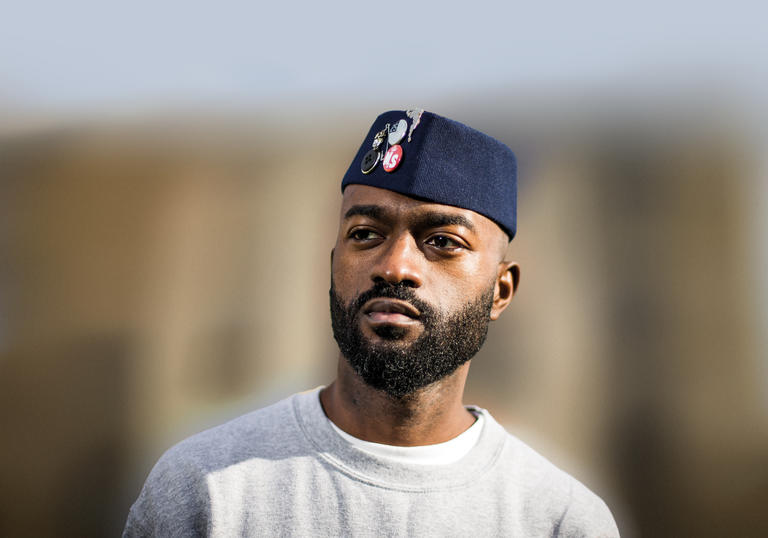Poet and playwright Inua Ellams, journalist Rachel Segal-Hamilton, TV writer Sophie Petzal, and novellist and editor Alex Christofi share the different routes into a writing career. And no, you don’t need an English degree…
Each panellist got into their career with words in different ways. Ellams, who has had his work performed at the National Theatre, won a Fringe First in Edinburgh and worked with the British Council as a poet, spoke about his experiences as an immigrant – he moved to England from Nigeria when he was 12. ‘The short answer to why I started writing is that I wanted to create things but I couldn’t afford paint.’
He emphasises that those who want to write should just write.
Segal-Hamilton had a more circuitous route to becoming journalist, starting out at a youth charity. She left to complete an MA and ended up as an editor at Ideas Tap. She points out that outside experience shouldn’t be discounted – her work with young people helped with her editorial job at Ideas Tap, which had a focus on supporting young people in the arts.
Sophie Petzal started out ‘just writing, writing, writing, trying to work out what was my preferred medium’. She’s now been a professional TV writer for about three years. Petzal completed a traineeship at the BBC which involved four four-month placements in different departments – a way to find out what she really wanted to do.
Alex Christofi, whose novel, Glass, was published last year, came to novel writing in a gradual way. ‘I didn’t decide to be a novelist at 18 and work to make it happen.’ Having finished his English degree, the prospect of doing a job to make money and pay rent ‘seemed daunting and horrible. I wanted to keep working with books, so I worked really hard to get into publishing.’
As ever, with arts careers, a common question is always how to make writing pay. ‘I never had the choice,’ explained Ellams. He did not have the right to work in the UK, and consequently had a lot of time to ‘read books and write poems’. He started working with big companies such as Apples and Snakes and the National Theatre, which meant that by the time he officially had the right to work, he had contacts and support in the industry. Why did he keep going when he wasn’t making any money from his work? ‘I needed to. Poetry allowed my voice to come out in a way that no other art form did.’
Segal-Hamilton’s advice is straightforward: ‘Be nice’. Every time you are doing work experience, make it seem like you’ve always been there, because it’s not always the most amazing writers who get the breaks, it’s the people who can be relied upon. ‘There is no magic way to make it work for you,’ stresses Petzal. Her advice was to get a job – any job – and keep writing in your spare time. She emphasised that, as with many freelance careers, it can be a case of ‘feast or famine’ – you either have too much work or not enough.
It can be hard to know how much work you can take on before either the work begins to suffer, or you begin to suffer and advises against taking on too much. It can be tempting to say yes to everything, but it’s important to be realistic and work out how much you can actually do - and do well.
Christofi has a regular day job working as an editor. He works in non-fiction to avoid the difficulty of being ‘in someone else’s imaginative space’ while trying to write his own novel. ‘I moved into non-fiction writing so it’s facts in the day, fiction in the evening.’ He told the group that the average salary for a novelist is around £7-£8k a year, so almost all novelists have other jobs to pay the rent, ‘Whenever I get sad about it, I remember that Chekhov was a GP’.
Petzal was refreshingly honest when asked why she chose her field: ‘I can’t do anything else! Why TV? It’s the art form that’s had the most impact on me. I wanted to make people feel the way that my favourite TV shows made me feel.’ With journalism, Segal-Hamilton believes, ‘as much as it’s about writing, is really about having ideas’, and enjoys the variety and freedom that comes with being freelance.
Christofi, who is currently editing his second novel, admitted, ‘I never wanted to be a writer, I just wrote. I’m not going to lie – the middle bit is tough. If you tell people you’re writing a book, the first question they’re going to ask is ‘oh, what’s it about?’ so you need to be able to boil down your pitch, to get across the flavour of the book.’ The main mistake you can make as a writer is forgetting that writing is communication’.
Segal-Hamilton encourages aspiring journalists to find an angle or a hook for their idea before pitching it to an editor. Petzal believes a good TV drama is incredibly expensive to make well, which puts pressure on the writers to be good! However, she believes ‘there’s an innate arrogance in being a writer – not only do you believe you have something to say, you believe that other people should hear it.’

